Monthly Archives: March 2017
From maple syrup fraudsters to The Codfather – 5 of the Worst Criminals in Food History!
 Like precious gem heists and exotic animal snatching, food crimes come with their fair share of high drama. The details of one seafood kingpin’s story are enough for an episode of The Sopranos: Federal agents disguised themselves as Russians and busted fisherman Carlos Rafael for a laundry list of crimes, including mislabeling his catch and selling thousands of pounds of fish under-the-table to a dealer in New York City. For our latest episode of Bite, our food politics podcast, we talked to journalist Ben Goldfarb about his recent Mother Jones feature about this fish tycoon, known as “The Codfather.” The interview with Goldfarb begins at 1:24. Listen to the audio, and read the story here 12:30
Like precious gem heists and exotic animal snatching, food crimes come with their fair share of high drama. The details of one seafood kingpin’s story are enough for an episode of The Sopranos: Federal agents disguised themselves as Russians and busted fisherman Carlos Rafael for a laundry list of crimes, including mislabeling his catch and selling thousands of pounds of fish under-the-table to a dealer in New York City. For our latest episode of Bite, our food politics podcast, we talked to journalist Ben Goldfarb about his recent Mother Jones feature about this fish tycoon, known as “The Codfather.” The interview with Goldfarb begins at 1:24. Listen to the audio, and read the story here 12:30
TSB Canada reiterates recommendation to require all fishing vessels have anti-exposure worksuits or survival suits
 The federal agency responsible for investigating boating accidents reiterated this week a warning that many small fishing vessels are permitted to operate in cold waters without anti-exposure worksuits or survival suits. In March, 2016, the Transportation Safety Board of Canada noted that the federal government was proposing to change the Small Fishing Vessels Inspection Regulations to require immersion suits for fishing vessels on unlimited voyages. TSB suggested at the time that proposed changes would also mandate immersion suits for vessels more than 12 metres of length operating within 25 nautical miles from shore, if the water temperature is less than 15 degrees Celsius. continue reading the article here 11:41
The federal agency responsible for investigating boating accidents reiterated this week a warning that many small fishing vessels are permitted to operate in cold waters without anti-exposure worksuits or survival suits. In March, 2016, the Transportation Safety Board of Canada noted that the federal government was proposing to change the Small Fishing Vessels Inspection Regulations to require immersion suits for fishing vessels on unlimited voyages. TSB suggested at the time that proposed changes would also mandate immersion suits for vessels more than 12 metres of length operating within 25 nautical miles from shore, if the water temperature is less than 15 degrees Celsius. continue reading the article here 11:41
Washington to negotiate on Columbia River salmon reforms
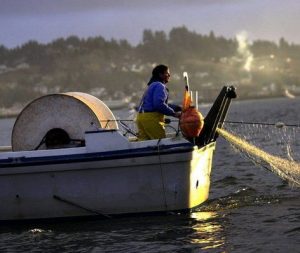 With time running short to adopt 2017 fishing seasons, the Washington Fish and Wildlife Commission on Friday delegated authority to director Jim Unsworth to negotiate the differences with Oregon regarding the controversial Columbia River salmon reforms. The Washington commission also intends to write a letter to its Oregon counterparts proposing a face-to-face meeting and to ask about Oregon’s commitment to shifting commercial fishing in the fall in the lower Columbia away from gillnets to gear allowing release of wild fish.,, In January, Washington modified its policy to allow for two more years of gillnetting between Woodland and Beacon Rock. Also in January, Oregon’s commission adopted rules much more friendly to commercial fishing. Oregon Gov. Kate Brown then scolded her commission and told it to adopt rules closer to those adopted by Washington. Read the article here 11:20
With time running short to adopt 2017 fishing seasons, the Washington Fish and Wildlife Commission on Friday delegated authority to director Jim Unsworth to negotiate the differences with Oregon regarding the controversial Columbia River salmon reforms. The Washington commission also intends to write a letter to its Oregon counterparts proposing a face-to-face meeting and to ask about Oregon’s commitment to shifting commercial fishing in the fall in the lower Columbia away from gillnets to gear allowing release of wild fish.,, In January, Washington modified its policy to allow for two more years of gillnetting between Woodland and Beacon Rock. Also in January, Oregon’s commission adopted rules much more friendly to commercial fishing. Oregon Gov. Kate Brown then scolded her commission and told it to adopt rules closer to those adopted by Washington. Read the article here 11:20
New England’s cod catch in nosedive
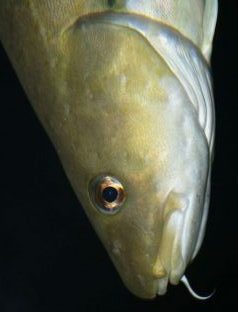 The decline of the fishery has made the U.S. reliant on foreign cod, and cod fish fillets and steaks purchased in American supermarkets and restaurants are now typically caught by Norway, Russia or Iceland in the north Atlantic. In Maine, which is home to the country’s second-largest Atlantic cod fishery, the dwindling catch has many wondering if cod fishing is a thing of the past. “It’s going to be more and more difficult for people to make this work,” said Maggie Raymond, executive director of the Associated Fisheries of Maine. State records say 2016 was historically bad for cod fishing in Maine. Fishermen brought less than 170,000 pounds of the fish to land in the state last year.,,, The National Oceanic and Atmospheric Administration released an assessment of the Gulf of Maine cod stock in 2014 that said the spawning population was at its lowest point in the history of the study of the fish. Scientists have cited years of overfishing and inhospitable environmental conditions as possible reasons for the decline. continue reading the story here 09:50
The decline of the fishery has made the U.S. reliant on foreign cod, and cod fish fillets and steaks purchased in American supermarkets and restaurants are now typically caught by Norway, Russia or Iceland in the north Atlantic. In Maine, which is home to the country’s second-largest Atlantic cod fishery, the dwindling catch has many wondering if cod fishing is a thing of the past. “It’s going to be more and more difficult for people to make this work,” said Maggie Raymond, executive director of the Associated Fisheries of Maine. State records say 2016 was historically bad for cod fishing in Maine. Fishermen brought less than 170,000 pounds of the fish to land in the state last year.,,, The National Oceanic and Atmospheric Administration released an assessment of the Gulf of Maine cod stock in 2014 that said the spawning population was at its lowest point in the history of the study of the fish. Scientists have cited years of overfishing and inhospitable environmental conditions as possible reasons for the decline. continue reading the story here 09:50
Pacific sardine population remains low, says National Marine Fisheries Service
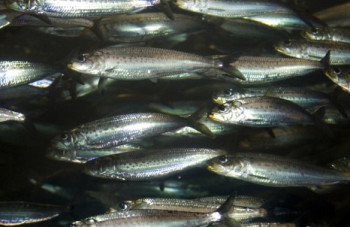 A study released Friday by the National Marine Fisheries Service puts the northern Pacific sardine population off the West Coast at perilously low levels for the third straight year. The findings, which will be reviewed next month by The Pacific Fishery Management Council, while disheartening for both environmentalists and fishermen, are also disputed by some in the fishing industry who question the method by which these forage fish are counted.,, But Diane Pleschner-Steele, who is the executive director of the California Wetfish Producers Association and represents the majority of boat fishermen and processors who harvest wetfish, said that there’s significant error in the way the sardines are counted and that current government surveys are not surveying adequately the fish that are in the near shore ocean. “Closing the sardine fishery basically closes everything for us, except for squid,” said Pleschner-Steele. “We are seriously considering applying for disaster relief.” read the article here 09:26:19
A study released Friday by the National Marine Fisheries Service puts the northern Pacific sardine population off the West Coast at perilously low levels for the third straight year. The findings, which will be reviewed next month by The Pacific Fishery Management Council, while disheartening for both environmentalists and fishermen, are also disputed by some in the fishing industry who question the method by which these forage fish are counted.,, But Diane Pleschner-Steele, who is the executive director of the California Wetfish Producers Association and represents the majority of boat fishermen and processors who harvest wetfish, said that there’s significant error in the way the sardines are counted and that current government surveys are not surveying adequately the fish that are in the near shore ocean. “Closing the sardine fishery basically closes everything for us, except for squid,” said Pleschner-Steele. “We are seriously considering applying for disaster relief.” read the article here 09:26:19
Maine lobstermen figured out how to make more money off their catches
 A lobstermen-only fishing organization has purchased a local lobster wholesale business, extending the reach of its members further down the distribution chain and giving them a greater share of the profit off their catch. The Maine Lobstering Union, formed in 2013 in the wake of a sharp drop in prices paid to lobstermen by dealers, is buying Seal Point Lobster Co., a wholesale lobster distribution firm owned by the Pettegrow family. The Pettegrows also own the Trenton Bridge Lobster Pound restaurant, which is not part of the sale.,, “It’s about putting lobstermen in a better position in the value stream on the shore side of the industry that they’ve never had access to,” Pitcher said recently. Read the story here 08:35
A lobstermen-only fishing organization has purchased a local lobster wholesale business, extending the reach of its members further down the distribution chain and giving them a greater share of the profit off their catch. The Maine Lobstering Union, formed in 2013 in the wake of a sharp drop in prices paid to lobstermen by dealers, is buying Seal Point Lobster Co., a wholesale lobster distribution firm owned by the Pettegrow family. The Pettegrows also own the Trenton Bridge Lobster Pound restaurant, which is not part of the sale.,, “It’s about putting lobstermen in a better position in the value stream on the shore side of the industry that they’ve never had access to,” Pitcher said recently. Read the story here 08:35
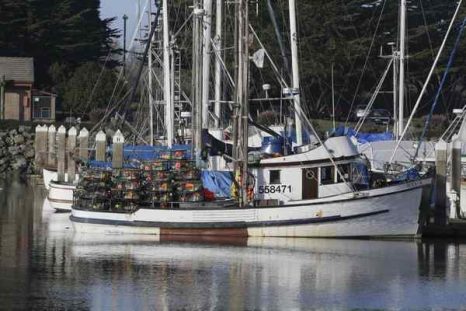
Congress to consider relief funds for California crab fleet as Brown proposes landing fee hike
Long-awaited federal funds to alleviate California’s crabbing fleet after last year’s dismal season could be approved by Congress as early as the next few weeks, according to California 2nd District Rep. Jared Huffman. Huffman (D-San Rafael) said Congress is set to vote on a supplemental budget appropriation to prevent a government shutdown in the coming weeks. He said he and a bipartisan group of legislators have signed on to a letter to House Speaker Paul Ryan and Minority Leader Nancy Pelosi urging them to include fishery disaster funds in this budget bill.,, Meanwhile at the state level, local legislators and fishing organizations are protesting Gov. Jerry Brown’s proposal to increase commercial fishing landing fees by as much as 1,300 percent in order to help close a $20 million shortfall in the California Department of Fish and Wildlife budget. continue reading the story here 16:09
Boat captain charged in crewmen’s deaths arrested after overdosing on heroin
 A Cushing captain accused of causing the deaths of two crew members when his lobster boat sank in a storm is behind bars again after he reportedly overdosed on heroin. Christopher A. Hutchinson, 28, was arrested Thursday by the Maine Marine Patrol after U.S. District Court Judge Brock Hornby issued an arrest warrant for him on Wednesday.,,Hutchinson was arrested Dec. 19 on two counts of seaman’s manslaughter and released three days later on $10,000 unsecured bail. The court imposed conditions that Hutchinson not use or possess illegal narcotics. But on March 13, Waldoboro emergency medical services and the Knox County Sheriff’s Office responded to a report of an unresponsive man at a residence in Friendship, according to the U.S. Attorney’s Office in U.S. District Court in Portland. Read the story here 14:13
A Cushing captain accused of causing the deaths of two crew members when his lobster boat sank in a storm is behind bars again after he reportedly overdosed on heroin. Christopher A. Hutchinson, 28, was arrested Thursday by the Maine Marine Patrol after U.S. District Court Judge Brock Hornby issued an arrest warrant for him on Wednesday.,,Hutchinson was arrested Dec. 19 on two counts of seaman’s manslaughter and released three days later on $10,000 unsecured bail. The court imposed conditions that Hutchinson not use or possess illegal narcotics. But on March 13, Waldoboro emergency medical services and the Knox County Sheriff’s Office responded to a report of an unresponsive man at a residence in Friendship, according to the U.S. Attorney’s Office in U.S. District Court in Portland. Read the story here 14:13

Lost Seattle-based crab-boat crew memorialized
The owner of the Destination, the crab boat that went missing Feb. 11, said he had full confidence in the skills of the six lost crew, and that his own son was initially supposed to be part of that Bering Sea harvest. “I have had a lot of sorrow in life but nothing like this,” wrote David Wilson, of Edmonds, in remarks read at a Thursday afternoon memorial service for the six lost crew. “God only knows why something like this happens because I don’t know why these good men went down at sea. … The pain will never go away. Even though these men are gone, their memory will live on forever.” Several hundred people attended the service for the six crew members: Capt. Jeff Hathaway, Larry O’Grady, Raymond Vincler, Darrik Seibold, Charles G. Jones and Kai Hamik. It was held at the Aurora Community Church of the Nazarene in Shoreline and was a celebration of their lives that included poetry and musical performances. continue reading the story here 13:03

Will Brexit bring boost to King’s Lynn, Yarmouth and Lowestoft – or will fishing industry be sold down the river?
While the sun shone down on the shrimp boats, there were big clouds on the horizon for King’s Lynn’s fishing fleet and what few vessels still manage to steer their way through the murky waters of EU fisheries policy. As fishermen met politicians to discuss lobbying for a better deal post Brexit, some Lynn boats were fuelling up to sail down to the English Channel to fish, because they have no quota to catch from their home port. Others have already steamed through an estuary full of shellfish on their way to fish for scallops off Yorkshire, because they have no quota in The Wash. The same issues affect every fishing port around our coast, from Wells Quay and Sheringham, to Yarmouth and Lowestoft. continue reading the story here 10:31
Federal government protects overabundant grey seal population over fish stocks
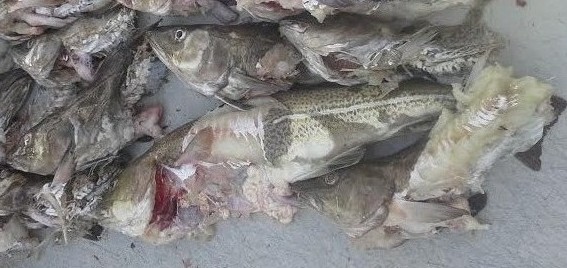 MONCTON, NB – Fish harvesters attending the Gulf Groundfish Advisory Committee this week in Moncton are expressing their frustrations and disbelief over the federal government’s refusal to protect groundfish stocks by controlling the grey seal population. Many species of groundfish will be unable to adequately recover without proper management of the grey seal population. The effect of grey seals on fish populations has been confirmed by scientists, yet the Department of Fisheries and Oceans (DFO) has not taken adequate action to address this problem. An increased harvest of grey seals would aid in allowing groundfish species to rebound, thereby creating new economic opportunities for thousands of families in Eastern Canada. continue reading the press release here 09:08
MONCTON, NB – Fish harvesters attending the Gulf Groundfish Advisory Committee this week in Moncton are expressing their frustrations and disbelief over the federal government’s refusal to protect groundfish stocks by controlling the grey seal population. Many species of groundfish will be unable to adequately recover without proper management of the grey seal population. The effect of grey seals on fish populations has been confirmed by scientists, yet the Department of Fisheries and Oceans (DFO) has not taken adequate action to address this problem. An increased harvest of grey seals would aid in allowing groundfish species to rebound, thereby creating new economic opportunities for thousands of families in Eastern Canada. continue reading the press release here 09:08
FISH-NL calls on Ottawa to reserve northern shrimp quota for inshore fleet in light of expected dramatic cuts
 The Federation of Independent Sea Harvesters of Newfoundland and Labrador (FISH-NL) is calling for an immediate halt to the fishing of northern shrimp by factory-freezer offshore trawlers in waters off Newfoundland’s northeast coast and southern Labrador until stocks rebound. “Priority must be given to the inshore harvesters of Newfoundland and Labrador — the economic pillars of our rural communities adjacent to the northern shrimp resource,” says Ryan Cleary, President of FISH-NL. “The inshore fleet is totally reliant on SFA 6.” continue reading the press release here 08:46
The Federation of Independent Sea Harvesters of Newfoundland and Labrador (FISH-NL) is calling for an immediate halt to the fishing of northern shrimp by factory-freezer offshore trawlers in waters off Newfoundland’s northeast coast and southern Labrador until stocks rebound. “Priority must be given to the inshore harvesters of Newfoundland and Labrador — the economic pillars of our rural communities adjacent to the northern shrimp resource,” says Ryan Cleary, President of FISH-NL. “The inshore fleet is totally reliant on SFA 6.” continue reading the press release here 08:46
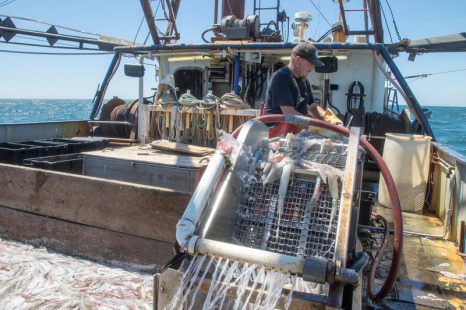
After a record run of squid, local fishermen warily eye competition, regulatory challenges
It was the best single run of longfin squid anyone on the East Coast had ever seen – and it happened fast and was over fast. In two months last summer, June and July, the East Coast-based squid fleet landed approximately 14 million pounds, with Rhode Island landing more than 50 percent of that quota, according to National Oceanic and Atmospheric Administration landing reports. “I’ve never seen anything like it. The squid just kept coming,” said Point Judith fisherman Jeff Wise of Narragansett. “I’ve never seen volume and catch rates that high before.”,,,Three policy issues surfaced in recent months that could affect Rhode Island squid vessels and processors. One concerns managing the number of squid permits allowed, an issue perennially raised by the commercial fishing industry. The other two concern the possible loss of fishing ground – one by proposed wind farms off Long Island, and the other from lobbying pressure for a buffer zone in a key squid area south of Nantucket and Martha’s Vineyard. Big read! Read the article here 07:47
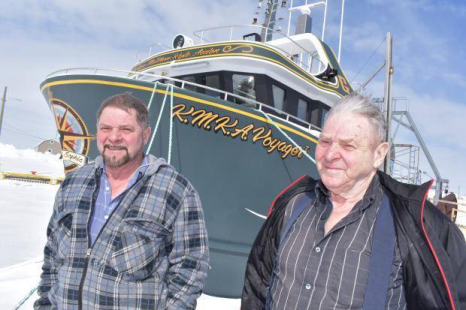
The cod are coming back to Newfoundland — and they’re eating the shrimp that had taken over
Theodore Genge has a big beautiful new dragger that’ll be ready to head for “the Labrador” as soon as the sea ice loosens its grip on Anchor Point. When the 63-year-old Newfoundland fisherman began building the $2.2 million trawler two years ago he had 750,000 pounds worth of shrimp quota to catch. But plummeting shrimp numbers in the cold water off Labrador have led Fisheries and Oceans Canada to drastically carve into quotas for that coast. Genge expects that by April he’ll be left with a total of 300,000 lbs of quotas — 220,000 lbs in the Gulf of St. Lawrence, where there is still plenty of shrimp, and 80,000 lbs on the Labrador coast. “Right now, yes, it’s pretty stressful – I don’t know whether there’s any hope or no,” said Genge. (Big read!) continue reading the article here 16:25
Proposed regulations irk lobstermen
B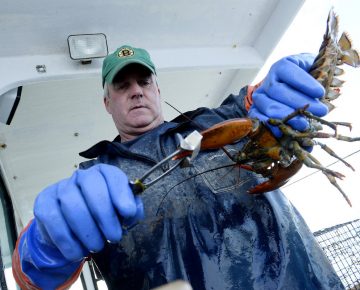 ay State lobstermen fear that a new proposal — meant to save lobsters in warming southern New England waters — could hurt business by barring them from harvesting in prime summer months and putting tighter restrictions on the size of their catch. The Atlantic States Marine Fisheries Commission will present a plan in New Bedford tonight on ways to maintain or increase the number of lobsters in waters from southern Massachusetts to Delaware. “Over the last 15 years we’ve seen a decline in lobster abundance, and we think that’s by and large a response to warming ocean temperatures,” said Dan McKiernan, deputy director of the Massachusetts Division of Marine Fisheries. “That’s the challenge that we have — it’s trying to preserve lobster but doing it in a way that the industry can survive,” he added. Yet Massachusetts lobstermen argue that their pots are full and don’t see what the fuss is all about. video, read the story here 15:58
ay State lobstermen fear that a new proposal — meant to save lobsters in warming southern New England waters — could hurt business by barring them from harvesting in prime summer months and putting tighter restrictions on the size of their catch. The Atlantic States Marine Fisheries Commission will present a plan in New Bedford tonight on ways to maintain or increase the number of lobsters in waters from southern Massachusetts to Delaware. “Over the last 15 years we’ve seen a decline in lobster abundance, and we think that’s by and large a response to warming ocean temperatures,” said Dan McKiernan, deputy director of the Massachusetts Division of Marine Fisheries. “That’s the challenge that we have — it’s trying to preserve lobster but doing it in a way that the industry can survive,” he added. Yet Massachusetts lobstermen argue that their pots are full and don’t see what the fuss is all about. video, read the story here 15:58
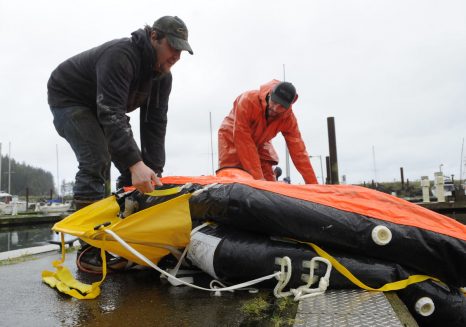
Commercial fishermen undergo safety training in Charleston
The water was somewhere between 45 and 50 degrees and here I was about to jump in. Though I had donned the bulky orange survival suit, which would protect me from the quick onset of hypothermia, I had been told that hypothermia could still set in after days spent in the water. Of course, I would only be bobbing like a cork in the Charleston harbor for maybe 15 minutes, but the idea was still daunting. This was the end of a two-day safety training for commercial fishermen. It was to teach us what to do when a boat starts to sink. Though I was only tagging along for the end, it is a requirement for commercial fishermen to earn the certification. Every vessel must have at least one certified safety instructor, and to get certified these fishermen undergo two days of training from the U.S. Coast Guard. A group of 10 men joined in on that training this week under the direction of Commercial Fishing Safety Examiner and Coast Guard civilian Steve Kee, who also threw me in the water to understand a small piece of what it would be like in a fast-moving crisis. continue reading the story here 14:58
Shark Fins: Waste or Resource?
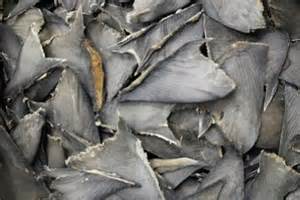 An article in the St. Augustine Record caught my eye on social media this week. Viewed as a winter resident of Florida the headline was quite shocking, especially since I have many times seen sharks hauled ashore by surf-fishing tourists and subsequently abused. By abuse I mean leaving the animal in the sand while relatives run to find cameras to record the grisly images for bragging rights, not at all concerned about the suffering of the shark and/or the fact that it needs water to be able to “breathe.” The header in the Record was even more worrisome: “Sale and trade of shark fins to continue in Florida, despite threat to ecosystem, tourism.” The Boston Globe-credited-photo leading the post was worse. continue reading the story here 14:17
An article in the St. Augustine Record caught my eye on social media this week. Viewed as a winter resident of Florida the headline was quite shocking, especially since I have many times seen sharks hauled ashore by surf-fishing tourists and subsequently abused. By abuse I mean leaving the animal in the sand while relatives run to find cameras to record the grisly images for bragging rights, not at all concerned about the suffering of the shark and/or the fact that it needs water to be able to “breathe.” The header in the Record was even more worrisome: “Sale and trade of shark fins to continue in Florida, despite threat to ecosystem, tourism.” The Boston Globe-credited-photo leading the post was worse. continue reading the story here 14:17

T-shirts designed to help protect an endangered species: the fisherman.
Jason Davis, founder of Loggerhead Printing located in Sneads Ferry, is making waves with his new T-shirt that reads, Protect The Fisherman. Protect An Endangered Species. It’s his creative response to the new proposed regulations passed down by the N.C. Marine Fisheries Commission, which has the potential to limit when and where fisherman can collect their daily bread. Though these regulations are not formally enforced yet, their potential impact has many commercial fishermen and the fish markets that rely on them fearful. Across the board, popular fish markets from Sneads Ferry to Jacksonville and even Emerald Isle refuse to comment on this touchy subject. It’s an issue that could impact the way they and their families in our coastal community live their life. A portion of the sale proceeds will go toward the North Carolina Fisheries Association. read the story here 11:53
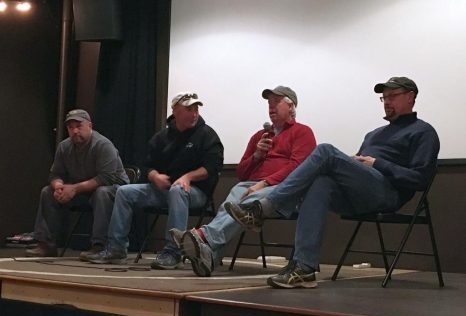
Maine fishermen see warning signs in lobster surge
After Maine’s lobster industry set sales records for a second straight year, area fishermen are enjoying the boom while the water is warm. Literally. Rising sea temperatures are benefiting Maine’s iconic crustacean, leading to an increase in population while other marine species, such as soft-shell crabs, have suffered a decline, according to fishermen who spoke at a March 16 Maine Coast Fishermen’s Association panel. But the factors for today’s success may portend tomorrow’s economic and cultural disaster, according to some area fishermen. “We’re going to start going down when it gets warmer,” Maine Lobstermen’s Association President Dave Cousens told the audience at the Frontier Cafe. Cousens was joined by MCFA President Gerry Cushing, of Port Clyde; Chebeague Island fisherman Alex Todd, and lobsterman Steve Train of Long Island. continue reading the story here 11:07
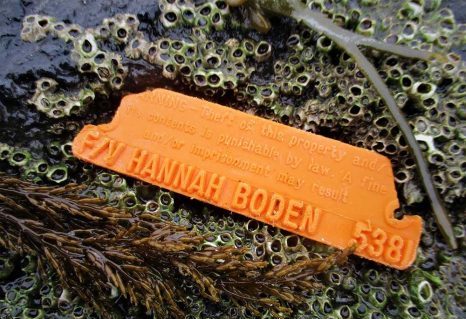
Tag from famous fishing boat washes up in Fanore
A tag, believed to be from one of the Hannah Boden’s lobster pots, has travelled up to 5,000 kilometres across the North Atlantic to where it washed up on Fanore Beach on March 14th. The discovery was made by avid beach comber Liam McNamara who also made contact with the crew of the Hannah Boden to check its authenticity. Liam said: “The is a great beachcombers find and a very cool story indeed. I was walking on Fanore beach last Tuesday and saw it wrapped in seaweed. I know what it was straight away has I had seen the film. It is in fact a tag from the now very famous New England boat, the Hannah Boden, which survived “The Perfect Storm” of 1991 while her sister boat the Andrea Gail which was lost at sea with all hands during the same storm,” he said. read the story here 10:28
Researchers: Columbia spring chinook forecast might be too high
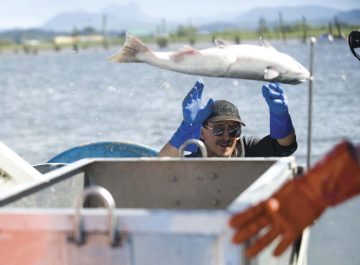 Fisheries managers have been predicting a slightly below-average run of spring chinook salmon on the Columbia River this year, but a newly published suggests that it may be worse. According to researchers from Oregon State University and the National Oceanic and Atmospheric Administration, ocean conditions were historically bad in the spring of 2015, when migrating yearling fish that will comprise the bulk of this spring’s adult chinook salmon run first went out to sea. In fact, Pacific Decadal Oscillation values — which reflect warm and cold sea surface temperatures — suggest it was one of the warmest nearshore oceans encountered by migrating chinook salmon dating back to at least 1900. The lack of food for the salmon in 2015 may have resulted in significant mortality that will show in this year’s run of Columbia River springers. One way or another, it will provide new information on fish survival and whether juvenile salmon prey data can help resource managers predict future returns. continue reading the story here 10:11
Fisheries managers have been predicting a slightly below-average run of spring chinook salmon on the Columbia River this year, but a newly published suggests that it may be worse. According to researchers from Oregon State University and the National Oceanic and Atmospheric Administration, ocean conditions were historically bad in the spring of 2015, when migrating yearling fish that will comprise the bulk of this spring’s adult chinook salmon run first went out to sea. In fact, Pacific Decadal Oscillation values — which reflect warm and cold sea surface temperatures — suggest it was one of the warmest nearshore oceans encountered by migrating chinook salmon dating back to at least 1900. The lack of food for the salmon in 2015 may have resulted in significant mortality that will show in this year’s run of Columbia River springers. One way or another, it will provide new information on fish survival and whether juvenile salmon prey data can help resource managers predict future returns. continue reading the story here 10:11
State unreceptive to squid-fishing petition
 David Pierce, director of the state’s Division of Marine Fisheries, started yesterday’s public hearing on whether to bar trawlers from fishing for squid within three miles of Nantucket by listing the reasons he does not support a local petition to keep them away from the island from May 1 to Oct. 31. By the end of the four-hour meeting, attended by an overflow crowd at the Public Safety Facility, Nantucket charter captain and former commercial fisherman Pete Kaizer hoped Pierce had changed his mind on at least one thing: that trawlers disrupt what are called squid mops in a way that kills squid eggs and affects spawning. subscription site, more info to follow as it becomes available. 09:46
David Pierce, director of the state’s Division of Marine Fisheries, started yesterday’s public hearing on whether to bar trawlers from fishing for squid within three miles of Nantucket by listing the reasons he does not support a local petition to keep them away from the island from May 1 to Oct. 31. By the end of the four-hour meeting, attended by an overflow crowd at the Public Safety Facility, Nantucket charter captain and former commercial fisherman Pete Kaizer hoped Pierce had changed his mind on at least one thing: that trawlers disrupt what are called squid mops in a way that kills squid eggs and affects spawning. subscription site, more info to follow as it becomes available. 09:46
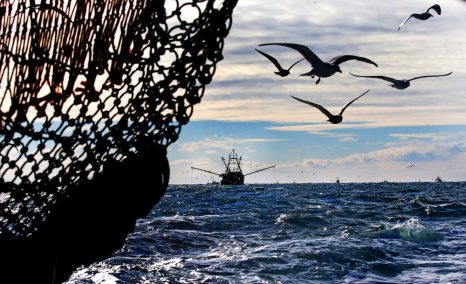
Federal regulators put an end to turbulent season in northern Gulf of Maine scallop fishery
Federal authorities are closing the scallop fishery in the northern Gulf of Maine at 12:01 a.m. Thursday after a contentious three-week season that pitted the interests of part-time, small-boat fishermen from Maine against large, full-time scallop operators. Fisheries regulators announced the closure Wednesday after small-boat fishermen – many of them Maine lobstermen operating 40- to 45-foot boats – met their annual quota of 70,000 pounds. The developments do not apply to the scallop fishery in state waters, which extend to 3 miles from shore. This year’s federal harvest has been contentious because the large, full-time boats are believed to have caught more than 1 million pounds of scallops in the northern Gulf of Maine scallop fishing area, but owing to a quirk in federal rules the fishery could not be closed until the small vessels caught 70,000 pounds. This month’s storms and unseasonable weather had kept the small boats in port, delaying their ability to meet their annual quota and close the area to the larger vessels, who were permitted to continue harvesting large quantities of scallops under federal rules. continue reading the story here 07:57
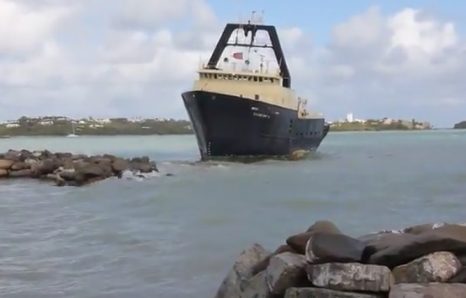
Proud Nova Scotian fishing trawler abandoned amid mysterious claims
It’s embarrassing for an old Nova Scotian fishing ship: tied up, gutted, disappeared in the night, denied port and now anchorless, run aground and abandoned in full view of vacationers at a white-sand Caribbean resort. The ship — once called the Esther Boyd and later the Cape Chidley during her proud days as a trawler — went out of service about 15 years ago. Now labelled the Yacht Hop, the ship spent a decade tied to the wharf in Lunenburg, until, in 2014, captain Joe Outred came to town, promising big things for her. “Everybody in town helped Joe, because he was going to do these mega-projects and give the boat a new life,” said Peter Richardson, who lived in Lunenburg for 15 years and now runs Peggy’s Cove Boat Tours. “Alan Altass, he’s a marine consultant, he appraises vessels. These old vessels down in Lunenburg — whenever one comes up for sale, they hire Alan as the go-to guy. Alan was running around, helping this guy, lending him his car, running here, running there for him. “And then the guy skipped out of town,” he said. continue reading the story here 12:39






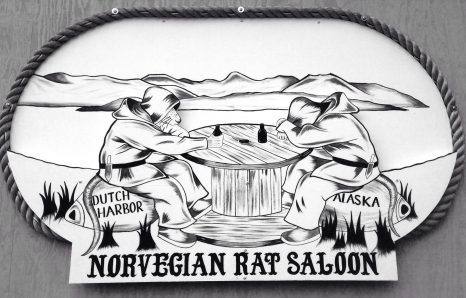
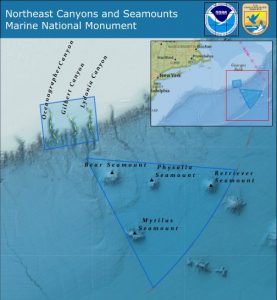

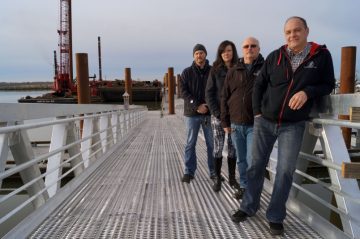 A new, expanded public fish sales dock in Steveston is set to open within the next month, restoring a balance between the village’s historic, industrial roots and present-day forces of gentrification. “Steveston was built on fishing and it’s been a fishing town for so many years; the (dock) is quite a focal point for the harbour; it’s industry interacting with the public; it’s an experience for locals and people from all over the Lower Mainland — all over the world actually. So, it’s a unique showpiece,” said Bob Baziuk, general manager of Steveston Harbour Authority (SHA). The new concrete dock is a 25 per cent expansion of the old wooden one, which fell into disrepair since its 1989 opening. In May 2015, the federal government provided $14 million for harbour upgrades. Along with the new public fish sales dock, the harbour also replaced two other nearby docks, built a new fish auction wharf and dredged Steveston Channel.
A new, expanded public fish sales dock in Steveston is set to open within the next month, restoring a balance between the village’s historic, industrial roots and present-day forces of gentrification. “Steveston was built on fishing and it’s been a fishing town for so many years; the (dock) is quite a focal point for the harbour; it’s industry interacting with the public; it’s an experience for locals and people from all over the Lower Mainland — all over the world actually. So, it’s a unique showpiece,” said Bob Baziuk, general manager of Steveston Harbour Authority (SHA). The new concrete dock is a 25 per cent expansion of the old wooden one, which fell into disrepair since its 1989 opening. In May 2015, the federal government provided $14 million for harbour upgrades. Along with the new public fish sales dock, the harbour also replaced two other nearby docks, built a new fish auction wharf and dredged Steveston Channel. 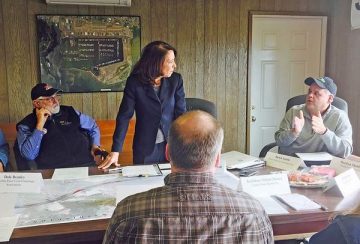




























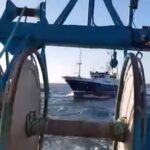
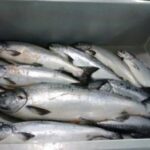




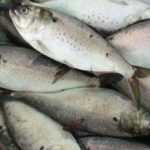
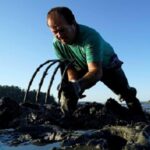


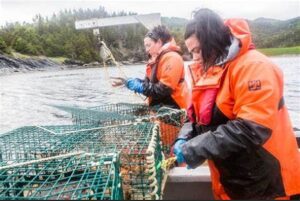
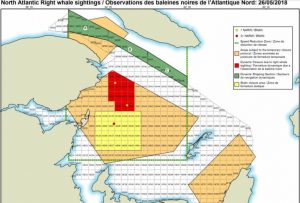
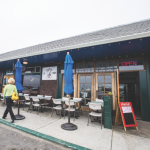



Comment on Amendment 23 re: Slighted Ports – Jim Kendall
Share this post